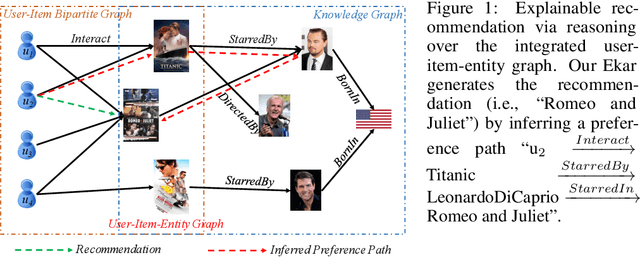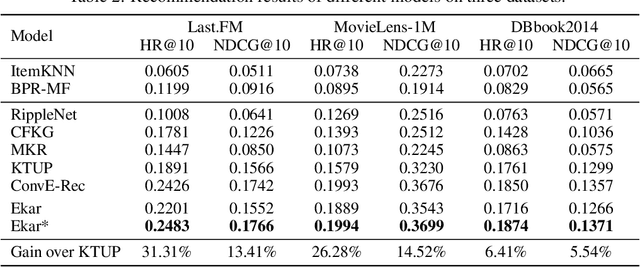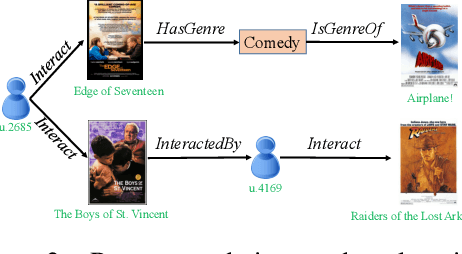Explainable Knowledge Graph-based Recommendation via Deep Reinforcement Learning
Paper and Code
Jun 22, 2019



This paper studies recommender systems with knowledge graphs, which can effectively address the problems of data sparsity and cold start. Recently, a variety of methods have been developed for this problem, which generally try to learn effective representations of users and items and then match items to users according to their representations. Though these methods have been shown quite effective, they lack good explanations, which are critical to recommender systems. In this paper, we take a different path and propose generating recommendations by finding meaningful paths from users to items. Specifically, we formulate the problem as a sequential decision process, where the target user is defined as the initial state, and the walks on the graphs are defined as actions. We shape the rewards according to existing state-of-the-art methods and then train a policy function with policy gradient methods. Experimental results on three real-world datasets show that our proposed method not only provides effective recommendations but also offers good explanations.
 Add to Chrome
Add to Chrome Add to Firefox
Add to Firefox Add to Edge
Add to Edge